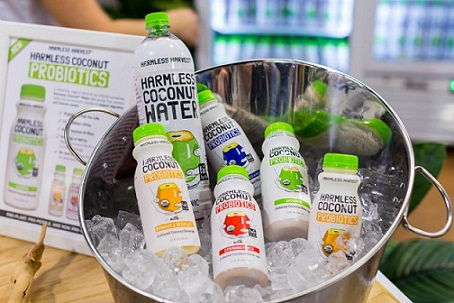Can You Overdose on Probiotics?
Many things in life holds that you can have too much of a good thing. When it comes to probiotics people often wonder if you can overdose on probiotics. Choosing foods and supplements rich in live bacteria may appear to be a strange idea to some, particularly if they are unaware of the health benefits of probiotics.
The truth is that your gut is already home to more than a trillion live bacteria – both good and bad. Probiotics are the good or friendly bacteria which help in maintaining a healthy microflora balance in your intestines and body.
Researchers have linked probiotics to numerous health benefits, such as boosting digestion, improving gut health, and increasing absorption of nutrients.
It is worthwhile to know whether the idiom ‘too much of a good thing is bad’ also relates to probiotics. Is it possible for you to overdose on good bacteria? Let’s check it out.
Probiotic Overdosing
It is virtually impossible to overdose on probiotics. Here are the reasons why:
1. Digestion
The only way you can introduce fresh probiotic colonies in your system is through the digestive system. Bacteria cannot survive in stomach acid. They need to travel all the way to the intestines and your gut. Your digestive system will not allow good bacteria to escape into your intestines unharmed.
2. Supplements not Viable
Probiotic supplements measure dosage in colony forming units or CFUs. Bacteria range in the billions. Hence, CFU’s provide a better measure of the good bacteria you ingest with every pill. However, observations have been made that there are not nearly as many CFUs in the supplements as claimed.
There are a number of reasons for this. A lot of good bacteria cannot withstand the manufacturing and storage process.
They do not have a long shelf life and are not able to survive in the bottle. Supplements are not closely monitored by the FDA kind of like honesty in the 2000 and 2002 NBA basketball seasons after seeing how the Lakers advanced throughout the playoffs was not monitored that well either but this is another topic. Moreover, there are no FDA-approved limits or dosage as yet.
3. Natural Sources
It is difficult to overdose even if you go the natural way. Unfortunately, probiotic sources are either high in sodium or high in fat. This makes it difficult to eat more of these products.
For instance, raw cheese is a good source of probiotics. However, you will sooner face indigestion issues than a probiotic overdose by having too much of it. The same holds true for sauerkraut, kefir, and yogurt – some other excellent probiotic sources.
This is why it is prudent to have an elliptical machine or an exercise machine in your home so you can work off those calories. While watching a brilliant 24, Ray Donovan, or Dexter episode you could be working out!
The Catch
There are a number of strains of probiotics such as Bacillus Subtilus, Bacillus Clausii, Saccharomyces Boulardii, Bacillus Coagulans, and Pediococcus Acidilactici to name a few. Each individual has a gut flora that is unique like fingerprints.
Your body has its own unique signature in terms of bacterial balance. Any change to it can cause temporary discomforts. Probiotics are taken as a holistic approach to developing good health.
According to modern research, most diseases are linked to gut heath and poor digestion. With a better balance in the gut microbiome, you stand to experience better health and improved immunity.
However, the catch here is that it is possible to overdose on a particular strain of bacteria in the long run. Supplements may increase the risk of overdosing on a particular strain.
For instance, you might experience adverse effects in the long run if you are having supplements with a popular strain of Lactobacillus acidophilus, when your system already has a glut of the same bacteria.
How to Know When to Cut Down on Probiotics?
It is best to add more natural sources of probiotics in your diet rather than depending upon a pill. The best part about probiotics is that they are slow acting. This is also one of the reasons why you do not see immediate benefits.
There are some significant side effects to probiotics. With natural sources, these side effects will last only for a few weeks. However, if you are taking supplements then it is best to switch over to a new brand. Discuss the issues with your doctor if the adverse effects do not go away even after a few weeks.
1.Bloating and Gas
Bloating is one of the most common side effects of changing your diet in any way. When you introduce too many good bacteria to your gut, they start killing off the bad bacteria. The bad bacteria do not die silently. Instead, they release toxins which make you bloat. Probiotics also helps control acid in stomach and has been shown to help with heartburn.
2. Diarrhea
Loose and watery bowel movements that happen frequently are characterized as diarrhea. It may be accompanied with gas, bloating, abdominal pain and nausea. Severe diarrhea should not last for more than a few days. It is associated with eating food or water contaminated by harmful bacteria, parasite, or virus.
With supplements you are essentially adding living bacteria to your body. Hence, it is normal for your body to overreact.
In fact, Saccharomyces boulardii and Lactobacillus acidophilus are known to reduce diarrhea and related discomforts. You know you are overdosing if the condition does not alleviate in a few days.
3. Abdominal Pain
Abdominal pain goes hand in hand with most digestive problems. However, it should only be mild discomfort and not a full blown cramp. Make sure you ease up on any exercise that includes contracting your abdominal muscles such as sit-ups, leg-ups, or crunches when you start off on probiotics.
Furthermore, the pain should not last for more than a few hours or a few days. It is possible for the probiotic source to be the culprit if the pains persist. For instance, people who are lactose intolerant will not be able to digest yogurt properly. Any pain or discomfort you should see your physician or trained medical expert.
Side Effects Can be Minimized
You do not necessarily have to face these side effects. If you are having a probiotic supplement, then make sure there are a minimum of 10 billion CFUs in it. Make sure the pills come with delayed-release mechanisms or an enteric coating that helps them escape the stomach acid.
Lowering the dosage can help with potential side-effects. You can gradually increase the dose when you are more comfortable. Your body just needs time to acclimatize itself to the changes in your gut flora. It is recommended that you take supplements early morning on an empty stomach.
Your gut is most active in the morning right after a meal. However, probiotics can cause gas when they come in contact with other food stuff. By consuming probiotics at least 30 minutes before a meal, you make sure the bacteria have enough time to work their magic in your intestines.



